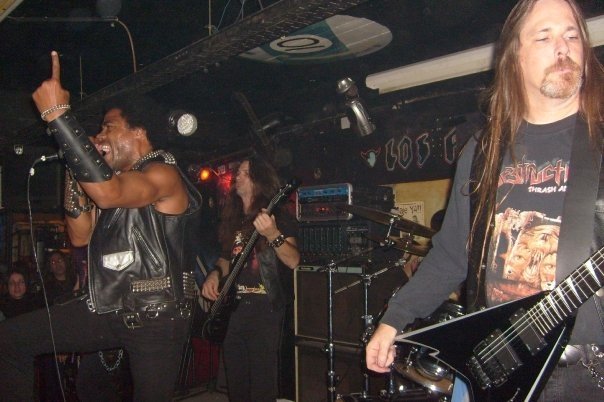If you grew up back in the eighties, you probably remember that music wasn’t as diversified as it is today, and there were walls of division up everywhere.
You could especially see this on MTV, where metal had a specialized show once a week, you only saw rap and alternative on the weekends, etc. The powers that be didn’t realize (or care) that music fans could like all kinds of bands instead of what the labels and radio spoon fed them, and it took a long time for these walls to come down.

With some genres, like metal, being into other kinds of music back then was frowned upon, which is why metal and punk initially had a hard time coming together. The punks wanted nothing to do with the metal scene, and deeply resented speed metal bands taking from their aggression and speed. And although you would see a lot of Latin fans at metal gigs, you didn’t see a lot of African Americans at shows. Come to think of it, you didn’t see a lot of women at metal shows at all until the hair bands came along.
As Norwood Fisher, guitarist for the African American band Fishbone once told Guitar Player, “A lot of my black friends in high school were into Van Halen and the Scorpions. But the way the industry was set up discoursed them from being a part of rock and roll, so they listened to it less and less.”
This was also just brought up in L.A. Weekly when they did a story on Hirax, an legendary L.A. speed metal band who are still underground legends to this day. Their singer, Katon De Pena, is African American, and said he didn’t feel excluded from the metal scene, but he was “misunderstood by other black folks. You get looked at differently if you’re black and into metal. I still get that today.”
Like Norword Fisher said above, De Pena also felt, “There are tons of black kids who love metal, but they think that there won’t be any other black kids there [at gigs] and they won’t be accepted.” But when Katon started going to metal gigs, “I was more accepted because we’re all outcasts and misfits. The thing that attracted me to metal is that I felt more at home there than anywhere else.”
Thankfully these days there’s not as much division in the metal scene today as there was back then, and even today when you see someone wearing the shirt of a band you love, it immediately makes you a brother in metal.






